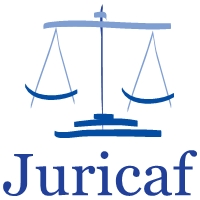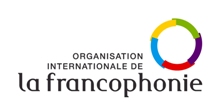fiches pays
-
 Agence universitaire de la Francophonie
Agence universitaire de la Francophonie
 Agence universitaire de la Francophonie
Agence universitaire de la Francophonie Albanie
Albanie Association africaine des Hautes juridictions francophones
Association africaine des Hautes juridictions francophones Association des Cours Constitutionnelles ayant en Partage l’Usage du Français
Association des Cours Constitutionnelles ayant en Partage l’Usage du Français Association des Ombudsmans et Médiateurs de la Francophonie (AOMF)
Association des Ombudsmans et Médiateurs de la Francophonie (AOMF) Association francophone des Autorités de protection des données personnelles
Association francophone des Autorités de protection des données personnelles Bénin
Bénin Belgique
Belgique Bulgarie
Bulgarie Burkina-Faso
Burkina-Faso Burundi
Burundi Cambodge
Cambodge Cameroun
Cameroun Canada
Canada Cap-Vert
Cap-Vert Côte d’Ivoire
Côte d’Ivoire Cemac
Cemac Comores
Comores Congo
Congo Congo démocratique
Congo démocratique Cour pénale internationale
Cour pénale internationale Egypte
Egypte France
France Gabon
Gabon Guinée
Guinée Guinée équatoriale
Guinée équatoriale Guinée-Bissau
Guinée-Bissau Haïti
Haïti Ile Maurice
Ile Maurice Laos
Laos Liban
Liban Luxembourg
Luxembourg Macédoine
Macédoine Madagascar
Madagascar Mali
Mali Maroc
Maroc Mauritanie
Mauritanie Moldavie
Moldavie Monaco
Monaco Niger
Niger Ohada
Ohada Organisation internationale de la Francophonie
Organisation internationale de la Francophonie- Président
 République centrafricaine
République centrafricaine République dominicaine
République dominicaine République tchèque
République tchèque Roumanie
Roumanie Sao Tomé et Principe
Sao Tomé et Principe Sénégal
Sénégal Suisse
Suisse Tchad
Tchad Togo
Togo Tunisie
Tunisie Uemoa
Uemoa Vanuatu
Vanuatu Vietnam
Vietnam
A propos
L’AHJUCAF est une association qui comprend cinquante cours judiciaires suprêmes francophones.
Elle a pour objectif de renforcer la coopération entre institutions judiciaires, notamment par des actions de formation et des missions d’expertise.
PRIX DE l’AHJUCAF POUR LA PROMOTION DU DROIT
L’AHJUCAF (Association des hautes juridictions de cassation ayant en partage l’usage du français) crée un prix destiné à récompenser l’auteur d’un ouvrage, d’une thèse ou d’une recherche, écrit ou traduit en français, sur une thématique juridique ou judiciaire, intéressant le fond du droit ou les missions, l’activité, la jurisprudence, l’histoire d’une ou de plusieurs hautes juridictions membres de l’AHJUCAF.
Call for papers of the scientific quarterly, Afrique Contemporaine
“What is the outlook for the justice system in Africa ?”
Media, research and evaluation reports repeatedly criticize the judiciary in Africa, decrying it as a “judicial shipwreck,” “financial wasteland,” or “public service without any service, judge, or justiciable offense,” among other epithets. Simultaneously, public authorities task the justice system with increasingly numerous and ambitious missions ; these are considered guarantees of democracy and economic development. These judicial tasks are accompanied by assertions about models, the introduction of innovative tools and procedures, and the creation and monitoring of indicators.
How do the judicial system and those in the system – whether on the side of the judges or the judged – absorb these new missions ? How are judicial practices transformed by these new tasks ? How do these changes and issues articulate with a plurality of laws ? How does the system and those in it navigate between “tradition,” “modernity,” “endogenous,” and “exogenous” – the ongoing tensions noted by researchers and insiders alike.
The articles we are calling for might address any one of a number of subjects, such as :
1. Constitutional justice : The outcomes and limits of constitutional justice as a means of consolidating and guaranteeing democratic processes.
2. Transitional justice : Is transitional justice a new form of justice ? Is it effective ?
3. Commercial justice : Stable rules of law for investors. Recent laws and jurisprudence that aim to increase the safety of international investments, such as the reform movement promulgated by OHADA (or Organisation for the Harmonization of Business Law in Africa). What is the judicial environment for such reforms ?
4. International, continental and regional justice : Are international judicial bodies, such as the International Criminal Court (ICC), principally targeted at Africans ? How well are the continental and regional jurisdictions performing ?
5. Justice and real estate.
6. Justice and penal institutions.
The articles should be based on an analysis of “justice in action.” emphasizing the uses and transformations of judicial systems. The articles should also present the views of various participants in the judicial system symmetrically – the justiciable issues in all their variety, auxiliary aids to justice, judges, juries, law enforcement, experts, and others.
Timeline
The timeline for this special issue follows (subject to change) :
Authors indicate their interest in contributing an article by submitting a one-page note that identifies the topic, provides a brief outline, and describes the data or fieldwork that will be used ; submissions are due by 2 December 2013.
The editors will select article topics and authors by 16 December 2013.
Selected authors must submit a first draft of their articles by 10 March 2014.
In their published versions, the articles will be 35,000 signs in length, including spaces, footnotes and bibliography. Each article will be blind peer-reviewed by two subject matter experts.
Contacts :
Please submit your response to this call for papers via email to : afrique-contemporaine@afd.fr and fortuiti@afd.fr
Autres actualités récentes
-
25 mai 2018
– Le nouveau site internet de l’AHJUCAF est ouvert ! -
25 mai 2018
– Maroc : la réforme de la justice présentée à la conférence internationale de Marrakech (2-4 avril 2018) -
5 mars 2018
– Dakar, 2 mars 2018, Cour suprême du Sénégal, Adoption de lignes directrices de l’AHJUCAF sur le terrorisme -
14 janvier 2018
– Colloque de l’AHJUCAF Bruxelles le 10 octobre 2017, Renforcer l’indépendance des Hautes juridictions par leur autonomie budgétaire, Interventions et présentations à télécharger -
11 octobre 2017
– AHJUCAF Déclaration de Bruxelles, 10 octobre 2017, Renforcer l’indépendance des Hautes juridictions par leur autonomie budgétaire






